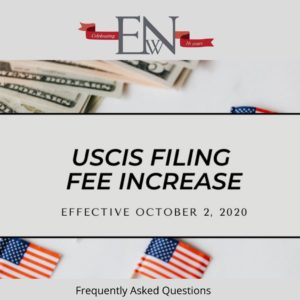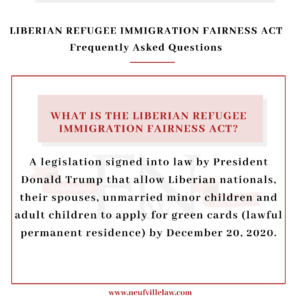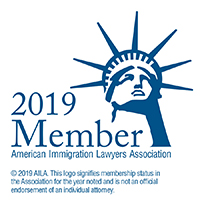What is a labor certification?
An approved Labor Certification (LC) is a document issued by the U.S. Department of Labor (DOL) certifying that:
- An employer needs the foreign workers’ skills and abilities.
- The employer has tried to recruit U.S. workers for the position. The employer must advertise and perform other recruitment efforts to try to find someone who is already a U.S. worker and who is ready, willing, qualified, and able to file the open position.
- The employee has offered the position at the normal or prevailing wage.
- The employer has found no qualified U.S. workers. Candidates who respond to the recruitment are presumed to qualify; the employer must convince DOL that they do not. If DOL is not convinced, the LC will not be issued and the foreign national will not be able to immigrate to the U.S.
What is the labor certification process?
- Establish a valid employee/employer relationship: Although the LC process can be done for persons who are outside the U.S., most LC’s are begun for persons who are already in the U.S. working for an American employer.
- Determine the minimum requirements: The key to the LC process is to decide what the true minimum requirements to the position are. The requirements generally must be normal to the occupation, must not be overly restrictive, and not more than the worker had when hired into the job offered.
- Determine the prevailing wage: The salary offered must be at least the prevailing wage, as determined by DOL.
- Analyze responses to recruitment: Any responses to the recruitment must be evaluated carefully. The employer can reject applicants only for lawful, job-related reasons.
- Processing times: Processing times vary from a 5-6 months.
What happens after labor certification approval?
The approved LC is filed with U.S. Citizenship and Immigration Services (USCIS) along with an immigrant petition to determine whether the foreign national qualifies for one of the following categories of sponsorship:
- Members of the Professions with Advanced Degrees or the Equivalent, or Aliens of Exceptional Ability in the Sciences, Arts, or Business (“Second Preference”).
- Professionals (jobs requiring a bachelor’s degree); Skilled Workers (jobs requiring two years’ or more training or experience); or Unskilled Workers (jobs requiring less than two years’ training or experience) (“Third Preference”).
If the immigrant petition is approved, the foreign national then may apply for permanent residence either through adjustment of status or consular processing.
For how long is the Labor Certification valid?
Generally, an approved LC is valid indefinitely for a specific employer, position, and location. If any of these factors change, the LC may become a useless document. Additionally, under a new regulation, DOL has broad power to revoke a certification.
Under legislation passed in October 2000, however, individuals who have applied for adjustment of status and whose cases have been pending for 180 days or more may change jobs or employers without affecting the validity of the underlying immigrant petition and LC, as long as the new job is in “the same or a similar occupational classification” as the job in the original petition and LC.
What are some common misunderstandings?
An approved LC is proof that there is a shortage of U.S. workers. It is only a first step in obtaining permanent residence (Green Card) status:
- It does not give authorization for a foreign national to remain in the United States.
- It does not “legalize” anyone’s stay in the U.S.
- It does not guarantee permanent residence.
What is the new PERM labor certification process?
In March 2005, DOL Implemented a new way to process LCs. The Program Electronic Review Management (PERM) program is an attestation and audit process whereby employers seeking permanent labor certification conduct advertising and recruitment prior to the filing the LC application.
The application process consists of one form, the “Application for Permanent Employment Certification” (Form ETA 9089), which requires a number of attestations as well as other information.
The applications are filed online or may be sent by mail to one of two national processing centers. Cases may be flagged for audit on the basis of certain factors, or simply randomly selected. The audit process may include a request for additional documentation, after which a certifying officer can certify or deny the application, or call for supervised recruitment.
















